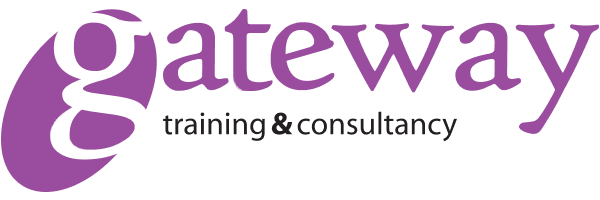|
One Day
Understanding and contextualizing Emotional and Mental Health in Children and Young Adults.
- Explore, Biological, Psychological, social and genetic predispositions, Adverse childhood experiences (ACE’s) impact on Children and Young Peoples Mental Health
Relevant theory including child development and family life cycle
- Knowledge of the social, psychological, family & biological factors associated with the development & maintenance of mental health problems.
- Awareness of Services – A&E, police, social care, criminal justice system etc.
- Understanding structure & responsibilities of agencies or services e.g., adult mental health services; Children & Young Peoples Social Care & processes such as the Common Assessment Framework, Children Act Section 85 responsibilities, schools & Local Authority responsibilities.
Social systems, inpatient culture & milieu, & group processes
- Understand the inpatient service as a social system & how the specific ideology & treatment models used on the unit contribute towards the therapeutic milieu.
- Understand the identity & ethos of the inpatient team, how it relates to the day to day functioning of the unit & how to maximise potential therapeutic daily activities.
- Understand the social systems & working of the team to support effective outcomes & cohesion. This means understanding the purpose of the service & wider system.
- Understand the aims of the service, including the commissioning structure, & the service specification set by commissioners.
- Have an awareness of power imbalances, group dynamics, culture, norms, values, roles, function & responsibilities within the team.
- Managing and exploring boundary setting between Young People and staff including the use of touch.
- Understand how the components of care fit together; for example, structures, key clinical meetings, individual services provided by different parts of the MDT.
- Develop an awareness of how personal views may differ from the perceived group norm, & how to be open about one’s views to facilitate discussions.
- Understand confidentiality
Two Days (Day one content plus)
Care and Treatment models
Legal frameworks
- Use of Mental Health Act and Mental Capacity Act in CAMHS services
- Safeguarding and Young People’s Rights
- Confidentiality
Least restrictive practices
- Containment and restrictive practice - developing least restrictive practices
- Use and purpose of therapeutic observation – understanding positive engagement
Risk assessment and Care planning
- Risk assessment and management - Co production with Young People and their families
- Care planning, coproduction and participation
- Developing agreed interventions
- Strategies for self-management
- Developing measurable goals
- Therapies and interventions overview
- Personalised 7-day planning for therapeutic/ recreational activities
- Medication management including common medications
|
|
|
Supporting Staff wellbeing
- Understanding reflective practice, understand models of practice – individual and group reflective practice.
Other Key Training Modules we can include in a longer programme:
1. CAMHS Tier 4 Overview & Service Context
- Tiered model of CAMHS (Tiers 1–4)
- Role and remit of Tier 4 inpatient and day services
- Integration with Tier 3 and community services
- Policy and legislative context (e.g., NHS Long Term Plan, Transforming Care)
2. Mental Health Conditions in Children and Adolescents
- Depression, anxiety, self-harm, eating disorders
- Psychosis, bipolar disorder, neurodevelopmental disorders
- Comorbidities (e.g., ASD, ADHD, learning disability)
3. Legal & Ethical Frameworks
- Mental Health Act (1983) and Deprivation of Liberty Safeguards
- Mental Capacity Act (2005) and Gillick competence
- Consent, confidentiality, and advocacy
- Rights of the child (UNCRC) and Equality Act 2010
4. Risk Assessment and Management
- Suicide and self-harm awareness & prevention
- Physical health risks (e.g., refeeding syndrome)
- Managing aggression and violence
- Clinical risk assessment tools and safety planning
5. Safeguarding and Child Protection
- Recognising and responding to abuse and neglect
- Multi-agency working with Social Care, Police, and Education
- PREVENT and contextual safeguarding
6. Therapeutic Interventions and Approaches
- Trauma-informed care and attachment theory
- Dialectical Behaviour Therapy (DBT), CBT, family therapy
- Group and individual therapeutic skills
- Occupational and recreational therapy strategies
7. Relational and Communication Skills
- De-escalation, active listening, non-verbal communication
- Working with families and carers
- Managing challenging behaviour therapeutically
8. Physical Healthcare in Mental Health Settings
- Monitoring vital signs, nutrition, and physical wellbeing
- Managing medication and side effects
- Emergency procedures and physical health conditions
- Consider, & with appropriate consultation exclude, an underlying physical illness that may cause symptoms.
- Biological factors inc. Genetic contributions to psychiatric disorders & other neurobiological factors.
- Recognise the therapeutically use of physical exercise.
- Understand the importance of nutritional needs inc. any vitamin/mineral deficiencies.
- Consider the importance of sleep and how to improve sleep.
9. Equality, Diversity & Inclusion
- Anti-discriminatory practice
- Cultural competence in child and adolescent care
- LGBTQIA+ inclusive care
10. Staff Wellbeing and Reflective Practice
- Recognising vicarious trauma and compassion fatigue
- Reflective practice groups and supervision
- Promoting resilience and team support
|
|

